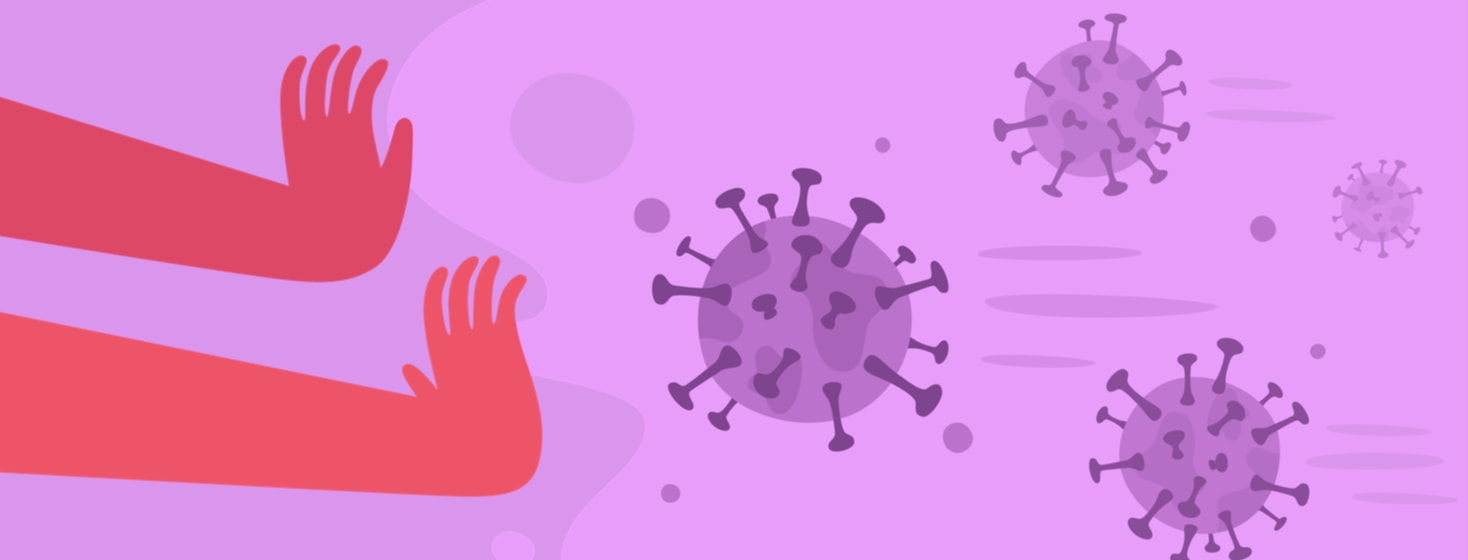Effects of COVID-19 on Anxiety Levels of Children with CF and Their Peers
When the COVID-19 pandemic broke out in March 2020, nearly everyone had increased anxiety and stress. Fears of getting sick, dying, or feeling helpless were common.1,2
COVID-19 is a respiratory virus that mainly affects the lungs. Because of this, experts thought people with cystic fibrosis (CF) would be at a greater risk of getting severe illness from COVID-19 if they were infected. After all, adults and children with CF are already a vulnerable group that has to be mindful of everyday germs and viral infections.1,3
But aside from those who have advanced lung disease or people who have had a lung transplant, studies show that COVID-19 actually does not affect people with CF any differently than people not living with CF. And children fared even better.1
One analysis found that children with CF diagnosed with COVID-19 had mild illness – the same risk for their non-CF peers.3
Chronic illness during a global pandemic
Many studies have shown that adults have had higher levels of anxiety, depression, and stress due to the pandemic. But not much was known about those already living with an underlying health condition like CF, specifically children with CF.2
A 2021 study wanted to understand how COVID-19 affected anxiety levels in children with CF compared with children not living with CF.1
The study included 132 children with CF and 135 of their non-CF peers – neighbors, classmates, and friends – all between 7 and 18 years old. The study used phone surveys and questionnaires to gather data from April 30 to May 15, 2022. This was when most schools were closed and education went virtual.1
Research shows that anxiety and depression are generally more common in people with chronic illnesses. This is why researchers were eager to understand how this group coped with a global pandemic.1,4
The surprising results
To the researchers’ surprise, children with CF were more resilient about the pandemic than they expected. Children with CF were found to be:1
- Less anxious about family members catching the virus
- Less upset about schools being closed
- Less anxious about the pandemic in general
Children with CF have always had to deal with a health issue, whereas their non-CF peers have not. This could explain why kids with CF experienced less anxiety about the pandemic than their non-CF peers.1
Higher anxiety among those without CF
When schools are closed, children spend more time on screens, are less physically active, and may feel more isolated and lonely. Nearly 50 percent of the children without CF had anxiety due to COVID-19, compared with just 33 percent of children with CF.1
Anxieties from non-CF children included:1
- Upset about schools being closed
- Worries about family members getting COVID-19
- Feeling sad and lonely
- Overthinking about the pandemic
- Less likely to play
Self-care remains key for all children
While children with CF were more resilient during the COVID-19 pandemic than their non-CF peers, every child is unique and handles stressful situations differently. When something is out of our control – like a global pandemic – it can lead to feelings of anxiety, depression, and helplessness.1
Healthy coping strategies can help both children with and without underlying health conditions deal with life’s stressors. Ways parents can nurture their children during the COVID-19 pandemic include:5
- Talk to them honestly and openly about COVID-19. Answer any questions they may have. Share information in a way that is easy for them to understand.
- Reassure them that they are safe. Explain that by taking precautions like wearing a mask and social distancing, they can stay protected from COVID-19.
- Limit the news. Watching or reading the news on a constant basis can be overwhelming. Instead, consider checking just once or twice a day.
- Keep a routine. Have meals at regular times, schedule time for activities and play, and go to bed at the same time each night.
- Schedule quality family time. Make time for fun activities that you can do together.
Everyone deals with anxiety and stress differently. Check in with your child regularly and offer them as much support and care as possible.

Join the conversation